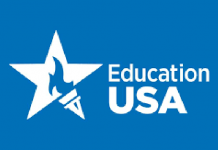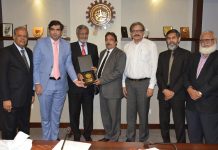WASHINGTON: Husain Haqqani has said that he made no admissions neither hurled any accusations in his opinion piece, which has stirred a storm in the political circles in the country.
The former Pakistan ambassador to the United States said that he had penned the opinion piece on reports emerging in the media, adding that the matter was being blown out of proportion to divert attention from Panama and other issues.
Haqqani clarified that he had admitted to the presence of the Central Intelligence Agency (CIA) in Pakistan, but hadn’t claimed someone had intentionally facilitated their presence.
He also criticised those asking a parliamentary commission to probe the issue, saying the same people had termed a commission on memogate inadequate.
“The more one digs into the matter, the more will be revealed,” said Haqqani, adding that people should not take the matter seriously.
In his article, “Yes, the Russian ambassador met Trump’s team. So? That’s what we diplomats do” — published in The Washington Post, Haqqani had admitted that with the authorisation of the-then elected civilian leaders he, as Pakistan’s ambassador to US, had facilitated the presence of large number of CIA operatives in Pakistan to track down Osama bin Laden.
Haqqani identified the then president Asif Ali Zardari and Prime Minister Yousaf Raza Gillani as his “civilian leaders”, and revealed, “In November 2011, I was forced to resign as ambassador after Pakistan’s military-intelligence apparatus gained the upper hand in the country’s perennial power struggle. Among the security establishment’s grievances against me was the charge that I had facilitated the presence of large numbers of CIA operatives who helped track down bin Laden without the knowledge of Pakistan’s army — even though I had acted under the authorisation of Pakistan’s elected civilian leaders.”
Haqqani wrote: “The relationships I forged with members of Obama’s campaign team also led to closer cooperation between Pakistan and the United States in fighting terrorism over the 31/2 years I served as ambassador. These connections eventually enabled the United States to discover and eliminate bin Laden without depending on Pakistan’s intelligence service or military, which were suspected of sympathy toward Islamist militants.”
The former ambassador said, “Friends I made from the Obama campaign were able to ask, three years later, as National Security Council officials, for help in stationing US Special Operations and intelligence personnel on the ground in Pakistan. I brought the request directly to Pakistan’s civilian leaders, who approved. Although the United States kept us officially out of the loop about the operation, these locally stationed Americans proved invaluable when Obama decided to send in Navy SEAL Team 6 without notifying Pakistan.” INP



